38 calculate glycemic index food labels
Glycemic Index (GI) Calculator - Free Online Calc Calculate Glycemic Index (GI) for Selected Food: -Low (GI) Food has a rating of 55 or less. -Medium (GI) Food has a rating of 56-69. -High (GI) Food has a rating of 70 or more. Glycemic Index - Diabetes Australia High GI foods are foods with a GI greater than 70. The recommendation is to eat more low and intermediate GI foods, not to exclude high GI foods. The GI is only a small part of the healthy eating plan for people with diabetes. For more information: visit the Glycemic Index and GI Database website.
Calculate the glycemic index (GI) of foods | GI tables - Biotrendies The process is very simple. Simply select the food and click on "Calculate". Immediately you will get the approximate glycemic index of the selected food, along with a small comparison with other similar foods. Why is it useful to use a calculator to find out the GI of foods? Because to know the glycemic index of beverages such as alcohol ...

Calculate glycemic index food labels
How to calculate the glycemic index from a nutrition label - Quora The glycemic index is based on a number between 0 and 100. 0 would mean the food had no impact on the individual's blood sugar level. 100 is the amount by which eating pure glucose (maltodextrin) would raise the individual's blood glucose. How to Calculate Glycemic Index - Step To Health Nowadays, numerous calculators allow you to know the glycemic index of foods. It's used to determine the rate at which carbohydrates pass into the blood as glucose. It's measured on a scale from 0 to 110. Thus: From 0 to 55 is a low index. Between 56 and 69 is an average value. 70 to 110 is a high glycemic index. How to Calculate the Glycemic Index | livestrong The glycemic index, or GI, is a method of ranking foods, from 0 to 100, based on how they influence your blood sugar levels. Higher GIs indicate foods that will cause your blood sugar to rise higher and faster than foods with lower GIs.
Calculate glycemic index food labels. Are Sugar Alcohols Keto-Friendly? - Healthline May 19, 2020 · When consumed in normal amounts through food, sugar alcohols are considered safe for most individuals. However, they do have the potential to cause digestive issues, especially in larger amounts ... Glycemic Index Chart for Common Foods - Verywell Health Remember that a low GI is a food that won't raise your blood sugar as much as a food with a medium or high GI. 1. Low GI: 55 or less. Medium GI: 56 to 69. High GI: 70 to 100. For example, rice milk (a processed food without any fiber) has a high GI of 86, while brown rice (plenty of fiber) has a medium GI of 66. Can I Tell What the Glycemic Index Is by Reading a Food Label? Carbohydrate Content The glycemic index score indicates how quickly and how much the carbohydrates in a food are likely to increase your blood sugar levels. Foods that have a higher carbohydrate content per serving will have more of an effect on blood sugar levels than those with only a small amount of carbohydrates. How to calculate the glycemic index from food labels? After calculating the proportion of carbs, multiply it with the standard glycemic index of the components. You can easily locate the standard GI on the GI table. Now, add up the results of the components obtained in step 3 to have a total GI score. Conclusion - How to calculate the glycemic index from food labels?
How to Calculate Glycemic Load - wikihow.health 5. Multiply the GI by the amount of carbohydrates and divide by 100. Take the GI you found in the first part and the amount of carbohydrates you found for the serving size you plan to consume and multiply them together. Then, divide the result by 100 to find the glycemic load. Carbohydrate Counting, Glycemic Index, Glycemic Load If a person's blood glucose level is elevated, the glycemic index of a food is lower than normal, and if a person's blood glucose is low, the glycemic index of the food goes up. Glycemic load In general, a serving of food with a glycemic load of 1—10 is considered to have a low glycemic load, 11—19 is a medium glycemic load, and 20 or ... How to Read Nutrition Labels for Low-Glycemic Shopping Although nutrition facts labels include data on total carbohydrates and sugars, that doesn't give you much to go on as far as glycemic load. To determine that, you really need to know what the food is made up of. For instance, if you find whole-grain bread, you need to know what grain was used to make it — wheat, oats, or millet. How to Calculate the Glycemic Load of Your Meal: 11 Steps - wikiHow Find the glycemic load of the meal. Take the total glycemic value of the meal from step 7 and multiply it by the net carbs of the meal from the previous step and then divide your answer by 100. Example: 55.53 (GI value) * 39 (net carbs) = 2165.67 2165.67 / 100 = 21.66 (rounded) 11 All done! You now know the glycemic load of the meal.
Reading food labels: Tips if you have diabetes - Mayo Clinic Jun 25, 2021 · If your meal plan is based on carbohydrate counting, food labels become an essential tool. Look at total carbohydrates, not just sugar. Evaluate the grams of total carbohydrates — which include sugar, such as added sugars; complex carbohydrates; and fiber — rather than only the grams of sugar. Glycemic Index Calculator - Which Foods are High on GI Index? By ShapeFit Fitness Calculators The glycemic index (GI) is a scale which ranks carbohydrate based foods based on how they affect blood glucose levels, by comparing them to glucose. The glycemic index measures how much your blood sugar level increases after eating certain foods. Result Glycemic Index for Selected Food : JOIN OUR NEWSLETTER How To Calculate Glycemic Index From Food Labels | dLife Divide 22g by 48g to get the proportion of carbs oatmeal is adding to the meal and also divide 26g by 48g to find for 8 ounces of orange juice. It will give a result of 0.46 for oatmeal and 0.54 for orange juice. Step 3: Multiply the proportions for the components by the standard glycemic index of the component. Glycemic Index: What It Is and How to Calculate It - Simple.life Blog Glycemic Load is a correction tool that gives you a more realistic picture of how food will influence your blood sugar. The formula looks like this: GL = (GI/100) x (net grams of planned carbohydrate) This calculation is a combination of portion size and glycemic index to give you a clearer picture of how the food will impact your blood sugar.
Glycemic Index Calculator The glycemic index calculator shows you the glycemic index value for the most popular food products and assigns them into three categories: low glycemic index, mid-range glycemic index, and high glycemic index. Check the article below to find out what glycemic index is and how to calculate it.
Reading Food Labels | GI Foundation To find out which foods carry the GI Symbol click here. Health Star Rating System (HSR) This voluntary Australian Government front-of-pack labelling system rates the overall nutritional profile of packaged food, from ½ a star to 5 stars. The more stars, the healthier the choice. All GI Symbol products have a 3.5 star rating or higher.
Learn to Calculate Glycemic Index | Bauman College The math is simple. To assess how a packaged food will affect your blood sugar, find the carbohydrate number in the label, subtract the grams of fiber and sugar alcohols. Your result will be the grams of digestible carbohydrates. The higher the number the bigger the effect on blood glucose. carbohydrate - grams of fiber (and sugar alcohols) =
Low GI Explained | GI Foundation However, because glucose (glycemic) responses vary markedly from day-to-day for all sorts of reasons, it is almost impossible for you to work out the GI of a food. The GI is the average glycemic response (GR) elicited by a portion of food containing 50 g of available carbohydrate expressed as a percentage of the GR elicited by 50 grams of the ...
Glycemic Index Calculator This tool can be very useful when it comes to analyzing the effects of the food we eat on our blood sugar levels. It is based on an elaborated database containing glycemic values for aliments in various categories: fruits, vegetables, legumes, nuts, grains, pasta, bread, bakery products, dairy, meals, sugar types, treats and beverages.
How to Calculate Glycemic Load - dummies 72 x 36 = 2,592 / 100 = 26 glycemic load To find the amount of available carbohydrates in packaged foods, simply check the nutrition facts label. Figuring out what the numbers mean Knowing how to calculate the glycemic load of a food is great, but it's not quite enough. The end measurement is what's most important to know.
Food Labels | CDC - Centers for Disease Control and Prevention If you eat the whole thing, you are eating 8 times the amount of calories, carbs, fat, etc., shown on the label. Total Carbohydrate shows you types of carbs in the food, including sugar and fiber. Choose foods with more fiber, vitamins, and minerals. Choose foods with lower calories, saturated fat, sodium, and added sugars.
Glycemic Index Calculator with steps - Definition | Diet Glycemic index (GI) shows how much carbohydrate enters an individual's blood and raises their blood sugar & insulin levels after eating a certain type of food (affecting their health and increasing weight). Therefore, each food has a different glycemic index. GI score can be between 0 and 100 values. For example, if a particular food has a GI ...
Australia New Zealand Food Standards Code - Standard 1.2.7 ... Jan 15, 2013 · Glycaemic Index (a) the food meets the NPSC, unless the food is a food standardised by Part 2.9 of the Code; and (b) the claim or the nutrition information panel under Standard 1.2.8 includes the numerical value of the glycaemic index of the food. Low. The numerical value of the glycaemic index of the food is 55 or below. Medium
How to Calculate Glycemic Index The result you obtained You can determine this by dividing the total gram of carbs with each component's grams inside the meal. For instance, if we consider the same previous example, then a meal with orange juice and oatmeal's has 48g of carbs. You can divide the carbs in each (orange juice and then oatmeal separately) with 48g of carbs.
How To Calculate Net Carbs (+ Carb Calculator) | Wholesome Yum May 04, 2020 · Some prepackaged or sugar-free foods claim to be keto, but may spike your blood sugar instead because they use sugar alcohols with a higher glycemic index. (Glycemic index is the measure of how much a certain food will affect your blood sugar. White table sugar or simple carbs, such as white bread or potatoes, have a high glycemic impact. Foods ...
PDF Glycemic index and glycemic load for 100+ foods - OSU Extension Service The complete list of the glycemic index and glycemic load for more than 1,000 foods can be found in the article "International tables of glycemic index and glycemic load values: 2008" by Fiona S. Atkinson, Kaye Foster-Powell, and Jennie . rand -Miller in the December 2008 issue of Diabetes are, Vol. 31, number 12, pages 2281-2283.
KIND Bars, Nuts and Spices Variety Pack, Gluten Free, Low ... Amazon.com: KIND Bars, Nuts and Spices Variety Pack, Gluten Free, Low Glycemic Index, 1.4 Ounce Bars, 12 Count : Grocery & Gourmet Food
How To Calculate Glycemic Index From Nutrition Label In Japan, nutritional supplements are taken by greater than 90% of the populace, the typical life expectancy is 84 years, in the U.S.A., nutritional supplements are taken by 80% of individuals, life span is 79 years, in Europe - 50%, life expectancy is more than 75 years. Nowadays, biologically energetic supplements must be connected to a ...
What Is Glycemic Index? - Academy of Nutrition and Dietetics Nov 19, 2019 · Pair a high GI food with a lean steak or a piece of salmon, a side of broccoli and a salad with vinaigrette, and the protein, fiber and fat all will serve to lower the glycemic index of the meal. In addition, the glycemic index doesn't take into account how much we're actually consuming. The GI value of a food is determined by giving people a ...
Can One Tell Exactly what the Index List Is as simple as Studying a ... The glycemic index, or GI, is a method of ranking foods, from 0 to 100, based on how they influence your blood sugar levels.You will not be able to gather the glycemic index value from reading the nutrition information label on a food package because it is not listed.
How to Calculate the Glycemic Index | livestrong The glycemic index, or GI, is a method of ranking foods, from 0 to 100, based on how they influence your blood sugar levels. Higher GIs indicate foods that will cause your blood sugar to rise higher and faster than foods with lower GIs.
How to Calculate Glycemic Index - Step To Health Nowadays, numerous calculators allow you to know the glycemic index of foods. It's used to determine the rate at which carbohydrates pass into the blood as glucose. It's measured on a scale from 0 to 110. Thus: From 0 to 55 is a low index. Between 56 and 69 is an average value. 70 to 110 is a high glycemic index.
How to calculate the glycemic index from a nutrition label - Quora The glycemic index is based on a number between 0 and 100. 0 would mean the food had no impact on the individual's blood sugar level. 100 is the amount by which eating pure glucose (maltodextrin) would raise the individual's blood glucose.
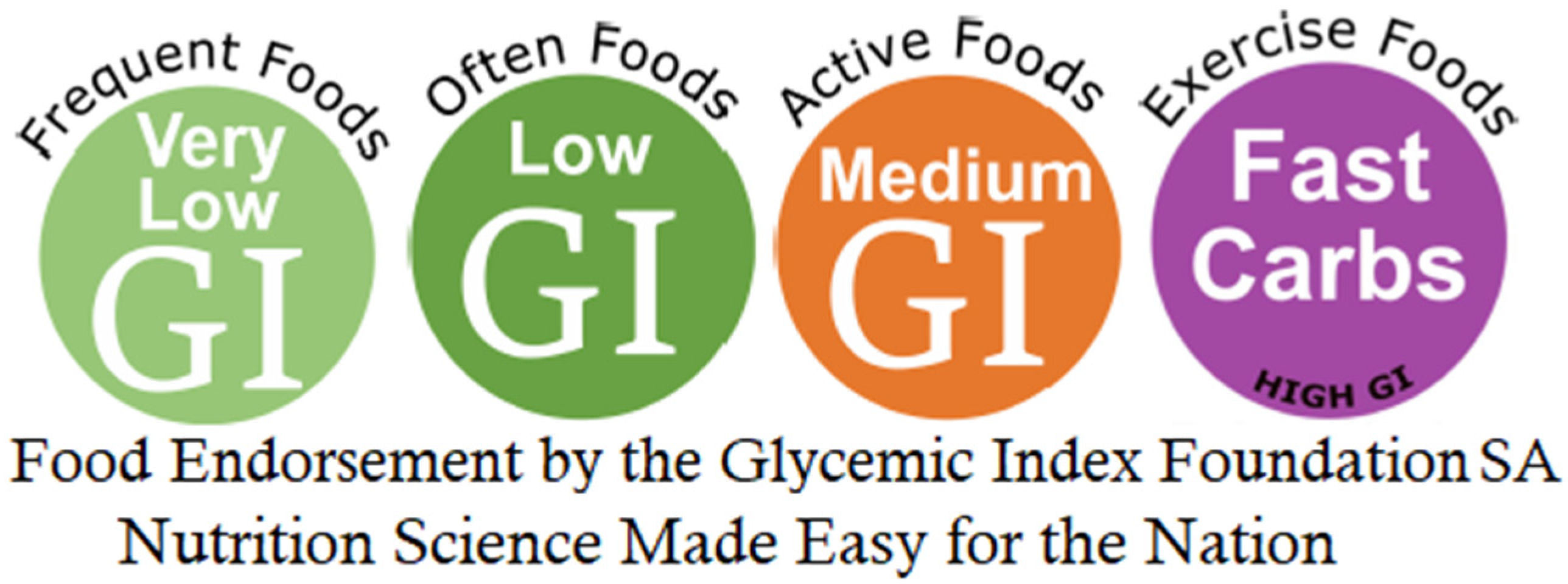



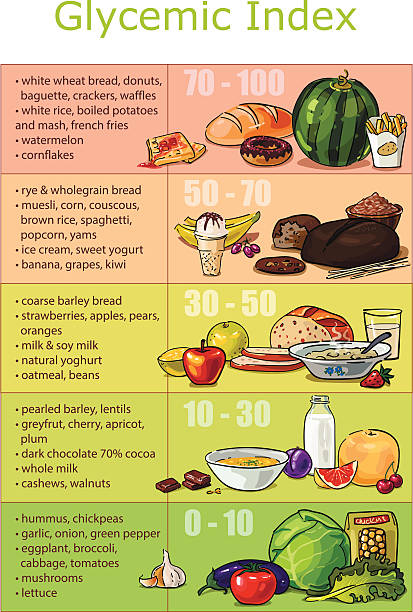

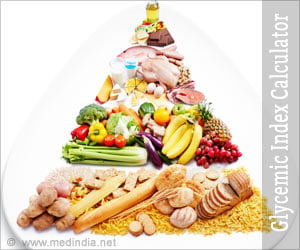


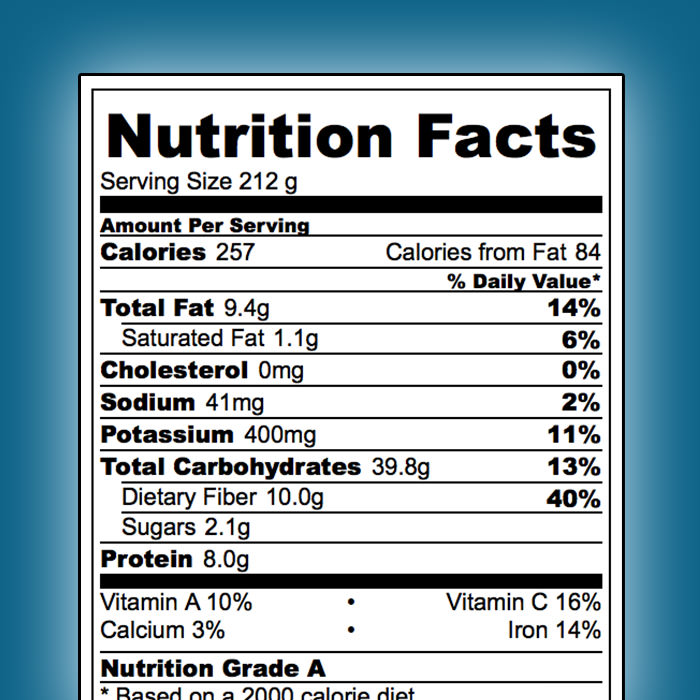

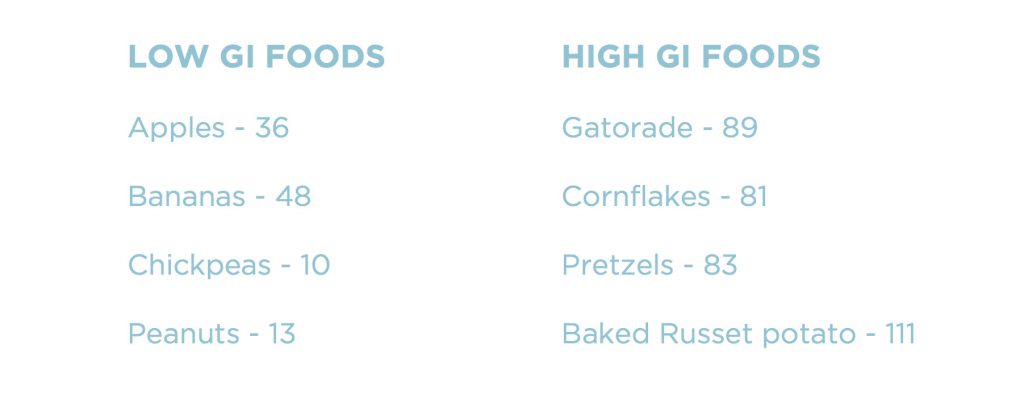

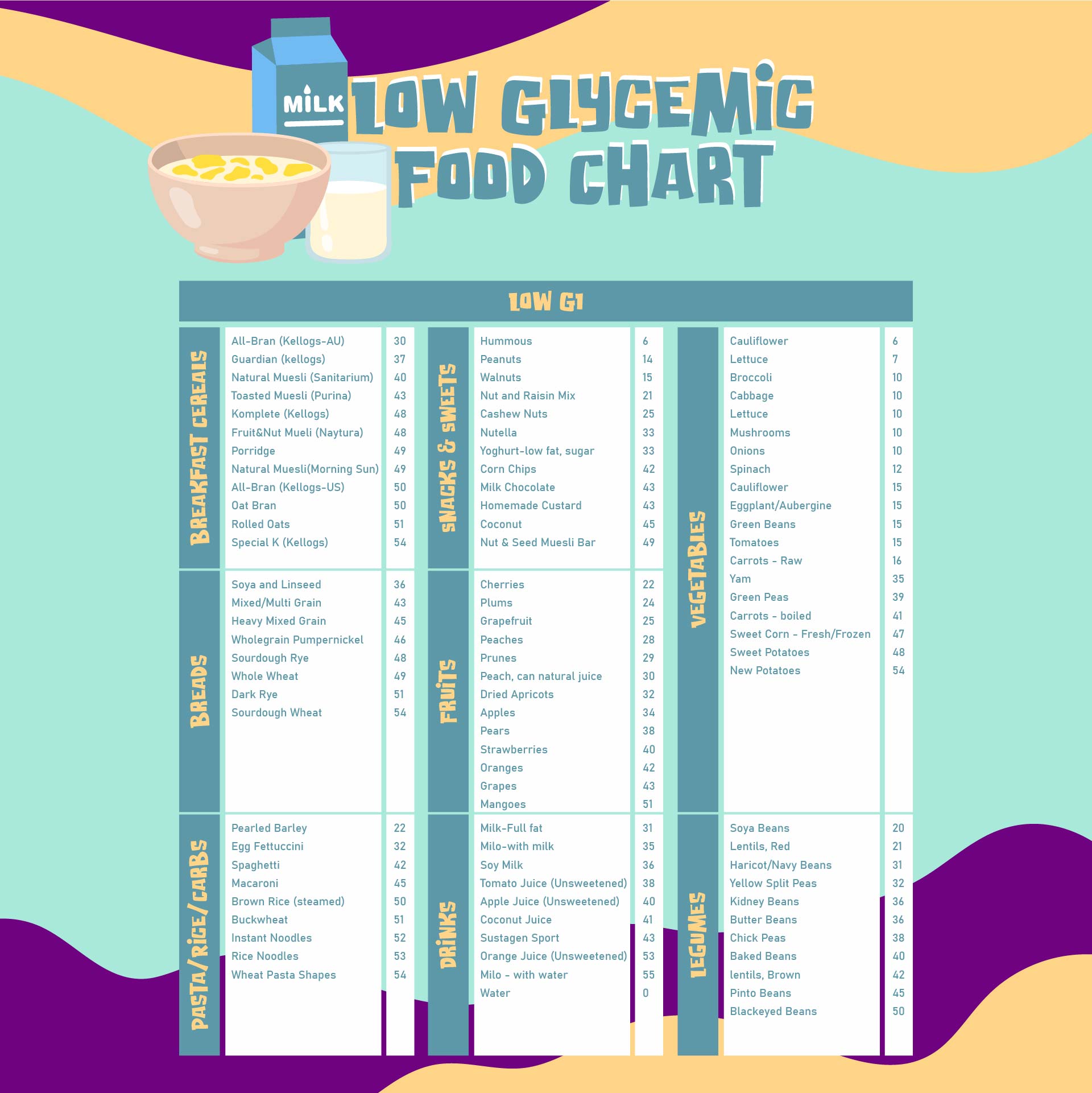








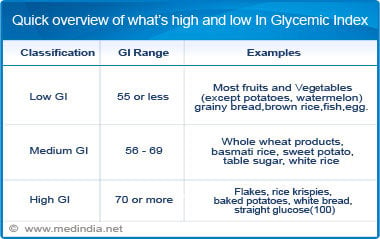

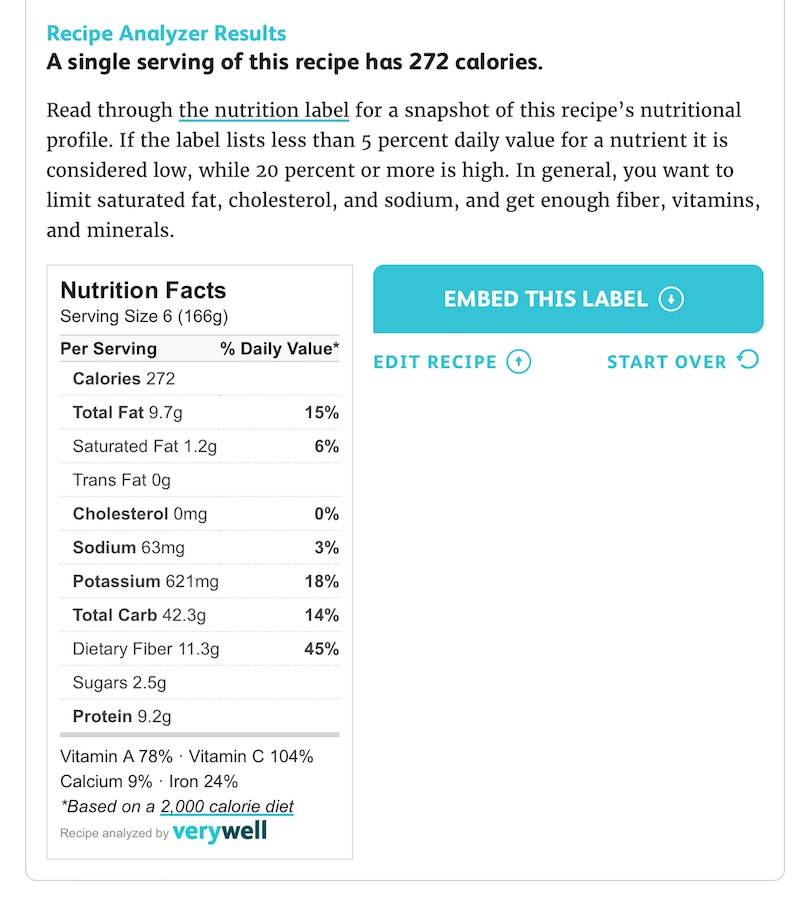
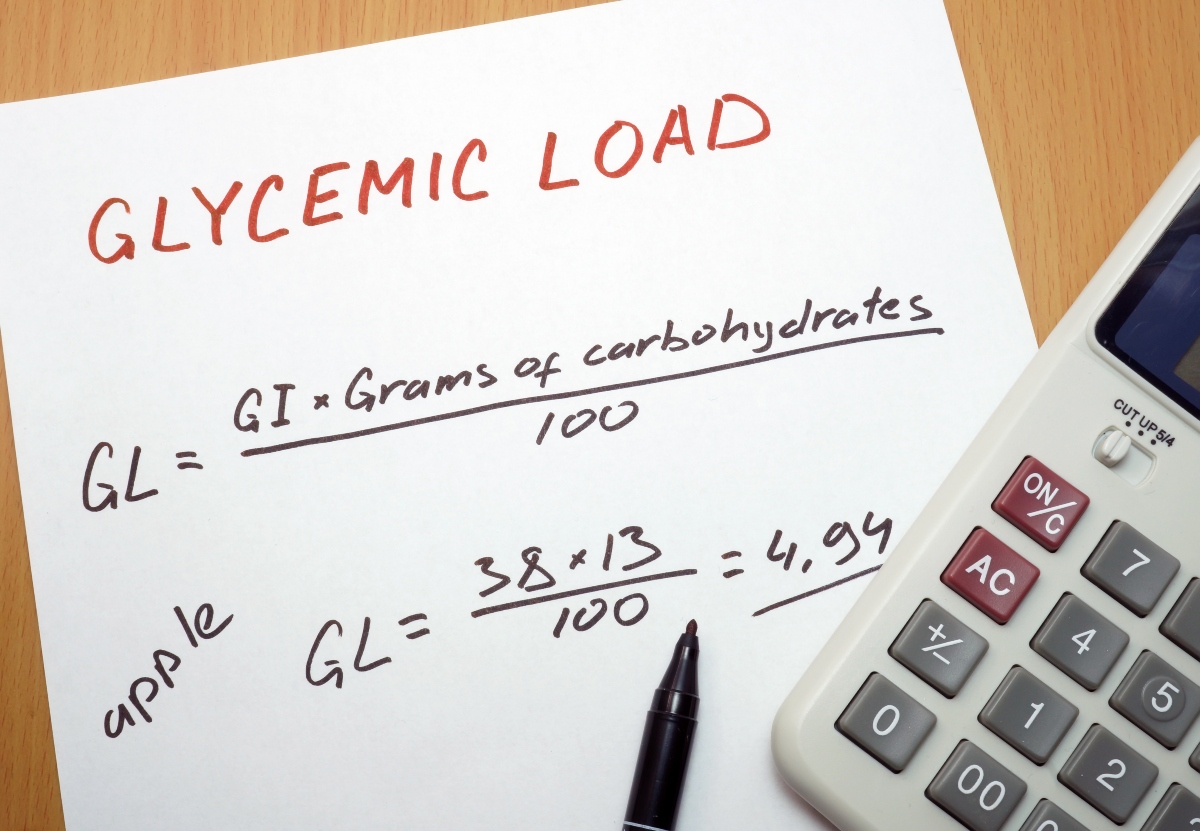
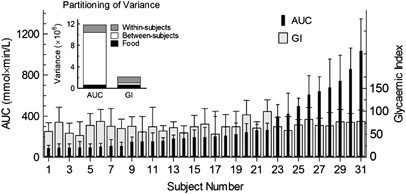
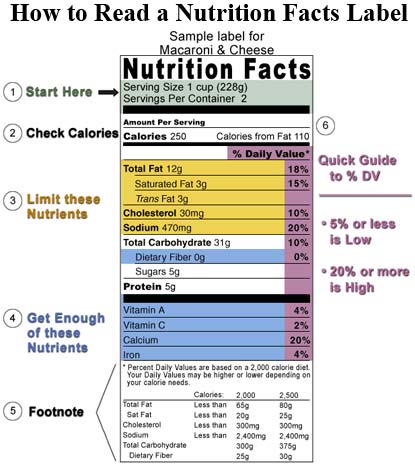

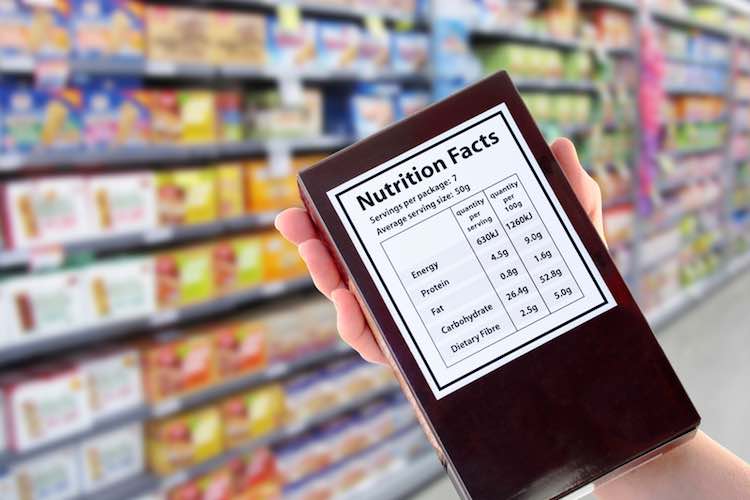
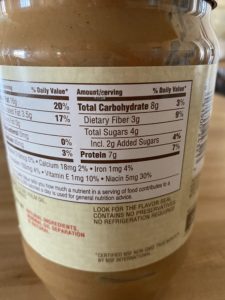



Post a Comment for "38 calculate glycemic index food labels"